Lincoln's Ties To Alton*

Lincoln's Ties To Alton
Growing up in Alton, we all felt a kinship to Lincoln by growing up in the shadow of his history here. We can't be ACTUAL relatives, as he has no living descendants (see chart below). But almost...

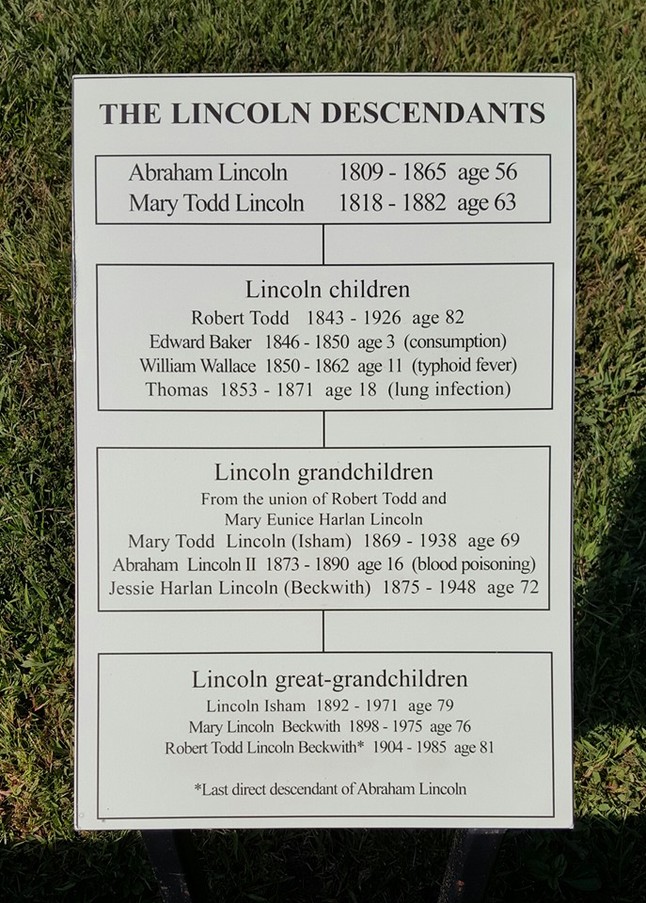
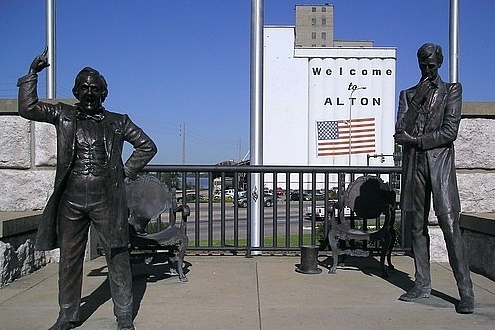
Lincoln-Douglas Square was dedicated in 1994.
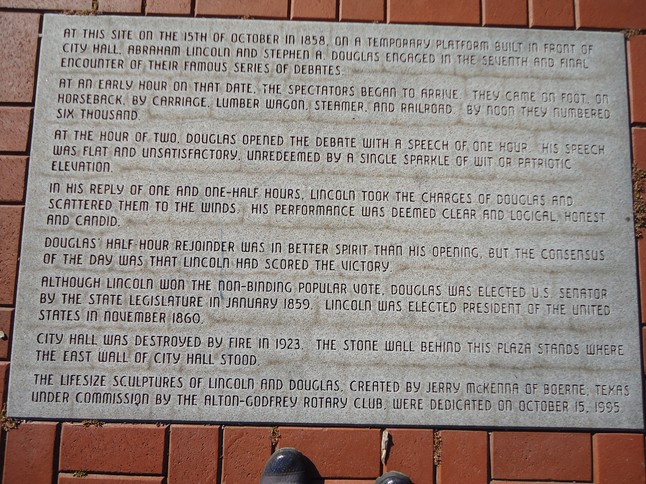
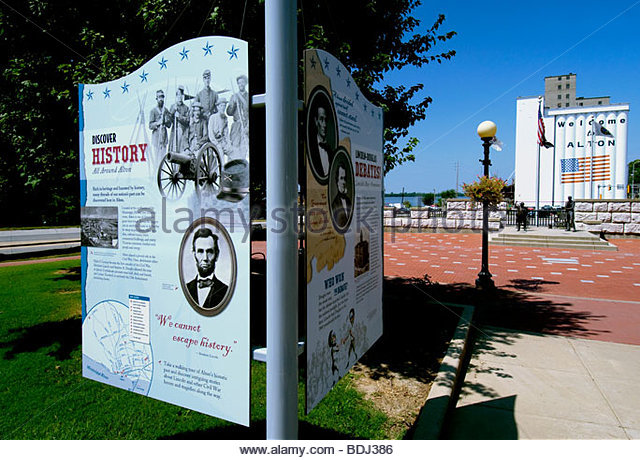
LINCOLN & CIVIL WAR LEGACY TRAIL, dedicated in 2010, lets you walk Alton with Lincoln by connecting 10 historic Alton sites relating to his time here and the city's connection to the Civil War. You can listen to stories via a cell phone audio tour accessed via visitalton.com.
Tour stops include the debate site, Elijah Lovejoy monument, Smallpox Island monument, Franklin House Hotel building, Ryder Building (now My Just Desserts restaurant), Lincoln-Shields duel plaque in Riverview Park, Lyman Trumbull House at 1105 Henry St., Confederate prison plaque, Alton Cemetery's National Cemetery, and Confederate Cemetery in North Alton.
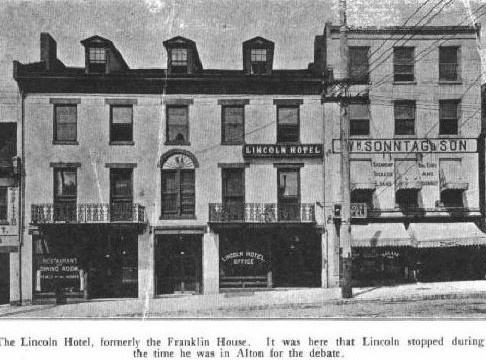

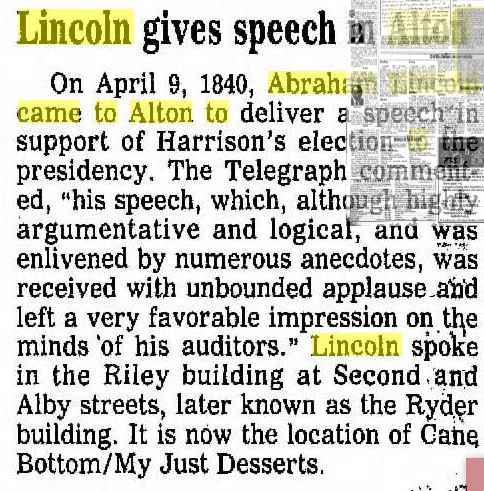
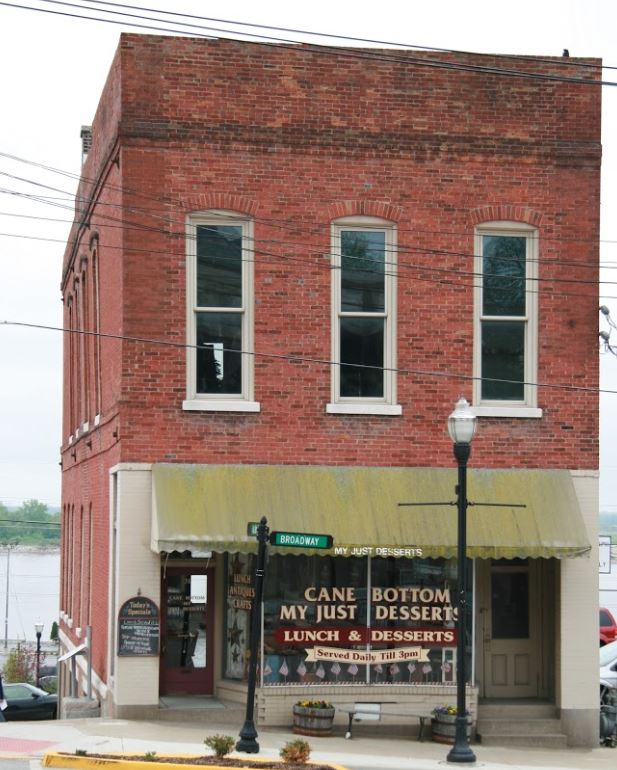
On Broadway near Telegraph building, My Just Desserts is open for lunch only,
blackboard menu, pie to die for.
*****
Alton's Infamous Prison
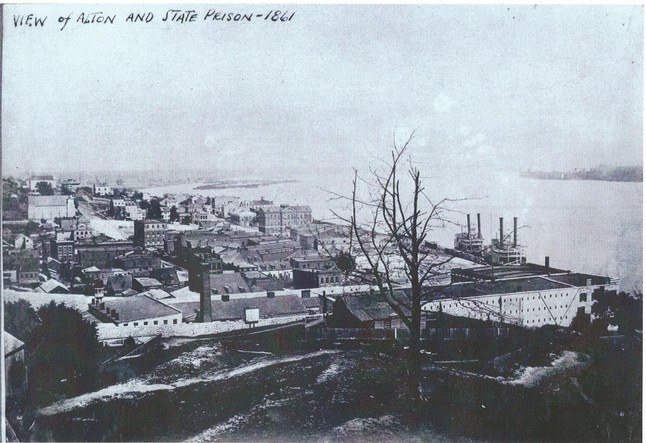
Picture from madison.illinoisgenweb.org
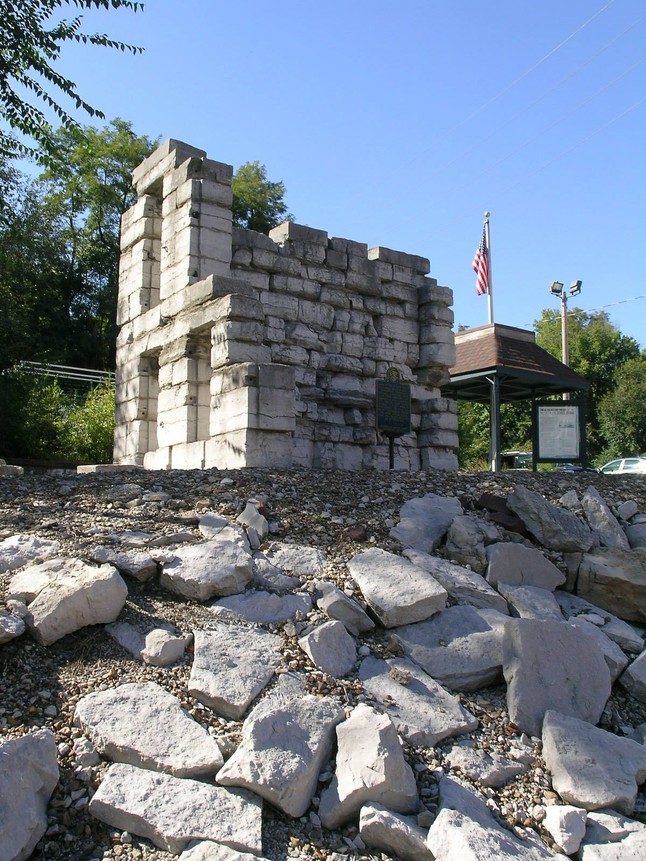
Prison remains today.
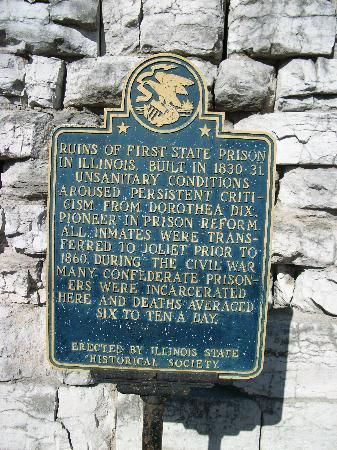
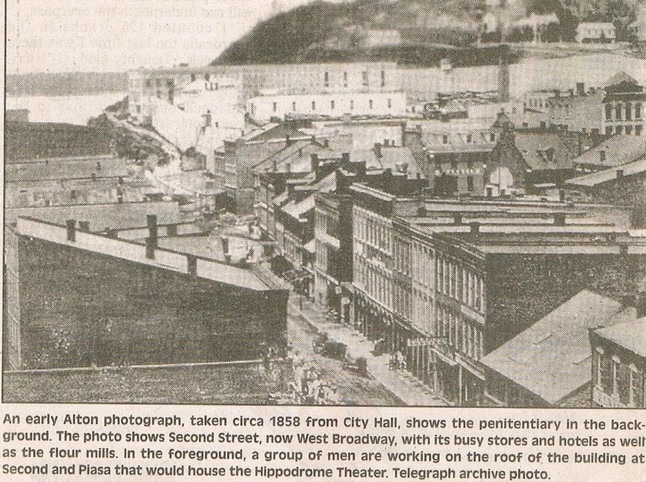
*****
Lyman Trumbull House

U.S. Senator and friend of Lincoln, Lyman Trumbull co-authored the Thirteenth Amendment, which abolished slavery. His home at 1105 Henry St. is a private residence, but there's a marker in nearby Haskell Park.
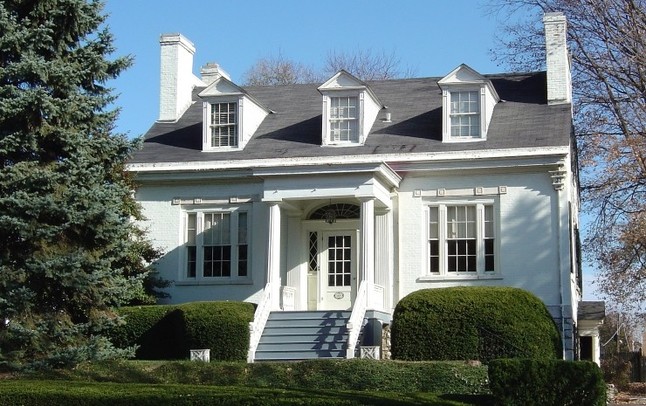
*****
Smallpox Island
Marker in West Alton at site of a quarentine hospital, where 268 Confederate prisoners died and were buried on the island. When it flooded in 1865, the hospital was closed.
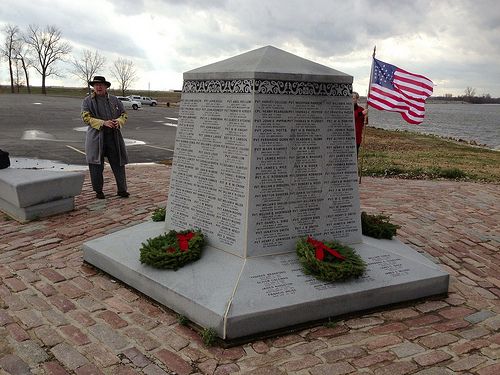
*****
Lincoln-Shields 1842 Duel "The challenge came, was accepted, and Lincoln named broadswords as the weapons to be used, the place selected being the Mississippi riverbank opposite Alton."
Story says one of the witnesses was our classmate Gladys Levis' great x 2 grandpa Edward Levis. Maybe one of your ancestors witnessed the boat come back with its "victim."
|
The Lincoln - Shields Duel |
|
|
|
|
|
STORY BY AN EYE WITNESS - THE CHALLENGE - THE BATTLE Source: Alton Evening Telegraph, February 25, 1902 There has been so many versions of the incidents of the duel, mostly for the purpose simply to produce a sensational article, it becomes a duty to history to give a simple and correct statement by an eye-witness of what actually took place. There are several citizens here in Alton now who were on the river bank or on the horse ferry which carried the excited company over the Mississippi river from the foot of State street to the island in sight and opposite to the city of Alton - which is now much larger than then - Mr. Edward Levis of Alton; also a Mr. George Booth of Chicago; and James E. Starr of Portland, Oregon, still living; and the late Captain Joseph Brown, ex-mayor of Alton and ex-mayor of St. Louis; and Mr. W. H. Souther, now deceased, who was also on the old houseboat among the crowd, have given us the Alton end correctly. The writer of this, though four years too late to witness this exciting and most humorous termination of what promised to be a bloody affair, became acquainted personally with all the individuals connected with it, and obtained the facts as herein detailed, also from the late Judge John Bailhache, the editor of the Alton Daily Telegraph. The Springfield end is given as I received it there. The Miss Mary Todd, named, became later Mrs. Abraham Lincoln, and Miss Julia Jayne, the wife of Judge Lyman Trumbull - both of whom have sons now residing in Chicago. The Inter-Ocean of Chicago, a few days since, gave an illustrated article of the duel in which not a single reference was correctly stated. ~Henry Guest McPike.
Here is an exact copy of the statement of Mr. Southers, who was a reporter on the Telegraph at the time:
James Shields (photo below shows Shields as Brigadier General during Mexican - American War, 1846-1848)
Mr. Lincoln Challenged Shortly after, Lincoln received a letter from Shields demanding an apology. To this Lincoln replied that he could give the note no attention because Shields had not first inquired whether he really was the author of the poem. Shields wrote again, but Lincoln replied that he would receive nothing but a withdrawal of the first note or a challenge. The challenge came, was accepted, and Lincoln named broadswords as the weapons to be used, the place selected being the Mississippi riverbank opposite Alton.
It was on the morning of September 22, 1842 that Shields and Lincoln arrived in Alton. I was then a printer and reported on the Alton Telegraph, and had received an intimation of the coming duel, which made me resolve to see it, if possible. The dueling party took breakfast at the Franklin house, and about half past 10 in the forenoon, proceeded to the ferry boat, which was owned and run by a man by the name of Chapman. The boat was propelled by two horses, which worked around a windless at one end of the boat deck, and I made arrangements with Chapman to drive these horses. A young fellow by the name of Broughton also smuggled himself aboard as a horse driver, making just ten of us in all, as I remember.
Lincoln and his party sat at one side of the boat, and Shields and his party at the other. The only thing which looked belligerent about the equipment were six long cavalry sabers which lay on the deck, in charge of Lincoln's seconds. There was no talking between the opposite sides, and everything proceeded as solemnly and decorously as at a funeral.
On the Battleground Arriving on the opposite shore, which was a wilderness of timber, a spot partially cleared was selected as the battleground. Shields took a seat upon a fallen log on one side of the little clearing, and Lincoln ensconced himself on another at the opposite side. The seconds then proceeded to cut a pole about twelve feet long, and two stakes with crotches in the end. The stakes were driven in the ground and the pole laid across the crotches, so that it rested about three feet above the ground. The men were to stand one on either side of the pole and fight across it. A line was drawn on the ground on both sides, three feet from the pole, with the understanding that if either combatant stepped back across his own line it was to be considered a giving up of the fight. This, you see, would keep the fighters within range of each other all the time, as neither could get more than three feet away from the pole, and the swords seemed to me to be at least five feet long. After all these arrangements had been completed, the seconds rejoined their principals at the different sides
Shields Backs down Lincoln remained firm, and said that Shields must withdraw his first note and ask him whether or not he was author of the poem in the Journal. When that was done, he said, he was ready to treat with the other side. Shields was inflexible and finally Dr. Hope got made at him. He said Shields was bringing the Democratic party of Illinois into ridicule and contempt by his folly. Finally, he sprang to his feet, faced the stubborn little Irishman and blurted out: "Jimmie, you G--- D--- little whippersnapper, if you don't settle this, I will take you across my knee and spank you." This was too much for Shields, and he yielded. I believe Dr. Hope would have carried his threat into execution if he hadn't. A note was solemnly prepared and sent across to Lincoln, which inquired if he was the author of the poem in question. Lincoln wrote a formal reply in which he said that he was not, and then mutual explanations and apologies followed.
I watched Lincoln while he sat on his log, waiting the signal to fight. His face was grave and serious. I could discern nothing of 'Old Abe,' as we knew him. I never knew him to go so long before without making some sort of a joke, and I began to believe he was getting frightened. But presently he reached over and picked up one of the swords, which he drew from its scabbard. Then he felt along the edge of the weapon with his thumb like a barber feels of the edge of his razor, stretched himself to his full height, stretched out his long arm and clipped off a twig from a tree above his head with the sword. There wasn't another man of us who could have reached anywhere near the twig, and the absurdity of that long-reaching fellow fighting with cavalry sabers with little Shields, who could walk under his arm, came pretty near making me howl with laughter. After Lincoln had cut off the twig, he returned the sword to its scabbard with a sigh, and sat down, but I detected the gleam in his eye, which was always the forerunner of one of his inimitable yarns, and I fully expected him to tell a side splitter right there in the shadow of the grave.
After things had been adjusted at the dueling ground, we returned to the ferry boat, everybody chatting in the most friendly manner possible. But it must have been an awful trial to Lincoln to hold in and not 'josh the life out of Shields.' Before we started back, John Broughton got a log and put it at one end of the ferry boat and covered it with a red shirt in such a manner that it looked like the recumbent figure of a man covered with blood. When we reached Alton, the landing was crowded with people who were there to learn the result of the duel. When they saw the dummy at the end of the boat, they almost crowded into the water to see who it was that had been slain. I enjoyed this scene, although it was clearly offensive to Shields." |
|
|
|
from madison.illinoisgenweb.org
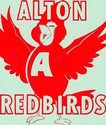
 "James Shields was auditor of state, elected on the Democratic ticket, and from his swagger in dress, his dudish manners, and his evident self-satisfaction with himself as a ladies man, quickly drew down on himself the ridicule of the Whips. Lincoln wrote a series of letters to the Sangamon Journal, after the fashion of the "Bigelow Papers," keenly satirizing young Shields. He fumed under these assaults, which only encouraged their continuance. Finally a poem was sent to the Journal by Mary Todd and Julia Jayne, in which Shields was pictured as receiving a proposal of marriage from "Aunt Rebecca," and later another rhyme followed, celebrating the wedding. In the words of the bounding west, these mischievous girls made life exceedingly wearisome for the dudish young State auditor. At the appearance of the last poem, Shields went to the editor of the Journal in a towering rage and demanded the name of his tormentor. The editor, in a quandary, went to Lincoln, who unwilling that Miss Todd and Miss Jayne should figure in the affair, ordered that his own name be given as the author.
"James Shields was auditor of state, elected on the Democratic ticket, and from his swagger in dress, his dudish manners, and his evident self-satisfaction with himself as a ladies man, quickly drew down on himself the ridicule of the Whips. Lincoln wrote a series of letters to the Sangamon Journal, after the fashion of the "Bigelow Papers," keenly satirizing young Shields. He fumed under these assaults, which only encouraged their continuance. Finally a poem was sent to the Journal by Mary Todd and Julia Jayne, in which Shields was pictured as receiving a proposal of marriage from "Aunt Rebecca," and later another rhyme followed, celebrating the wedding. In the words of the bounding west, these mischievous girls made life exceedingly wearisome for the dudish young State auditor. At the appearance of the last poem, Shields went to the editor of the Journal in a towering rage and demanded the name of his tormentor. The editor, in a quandary, went to Lincoln, who unwilling that Miss Todd and Miss Jayne should figure in the affair, ordered that his own name be given as the author.